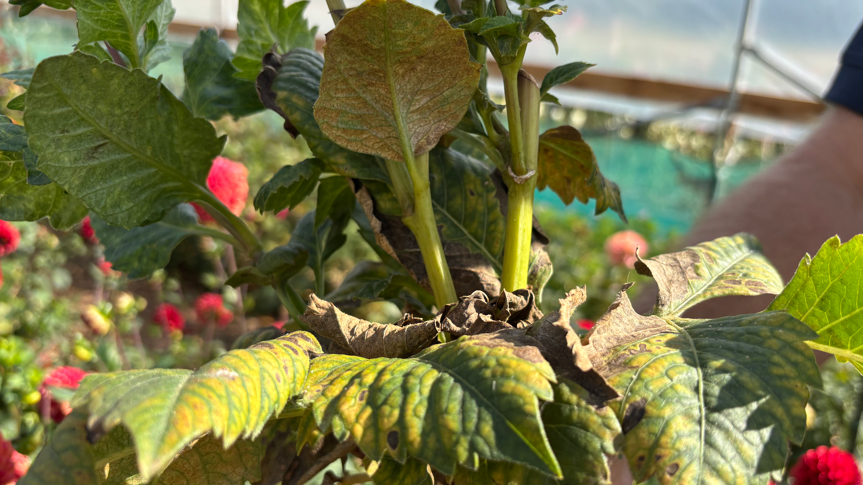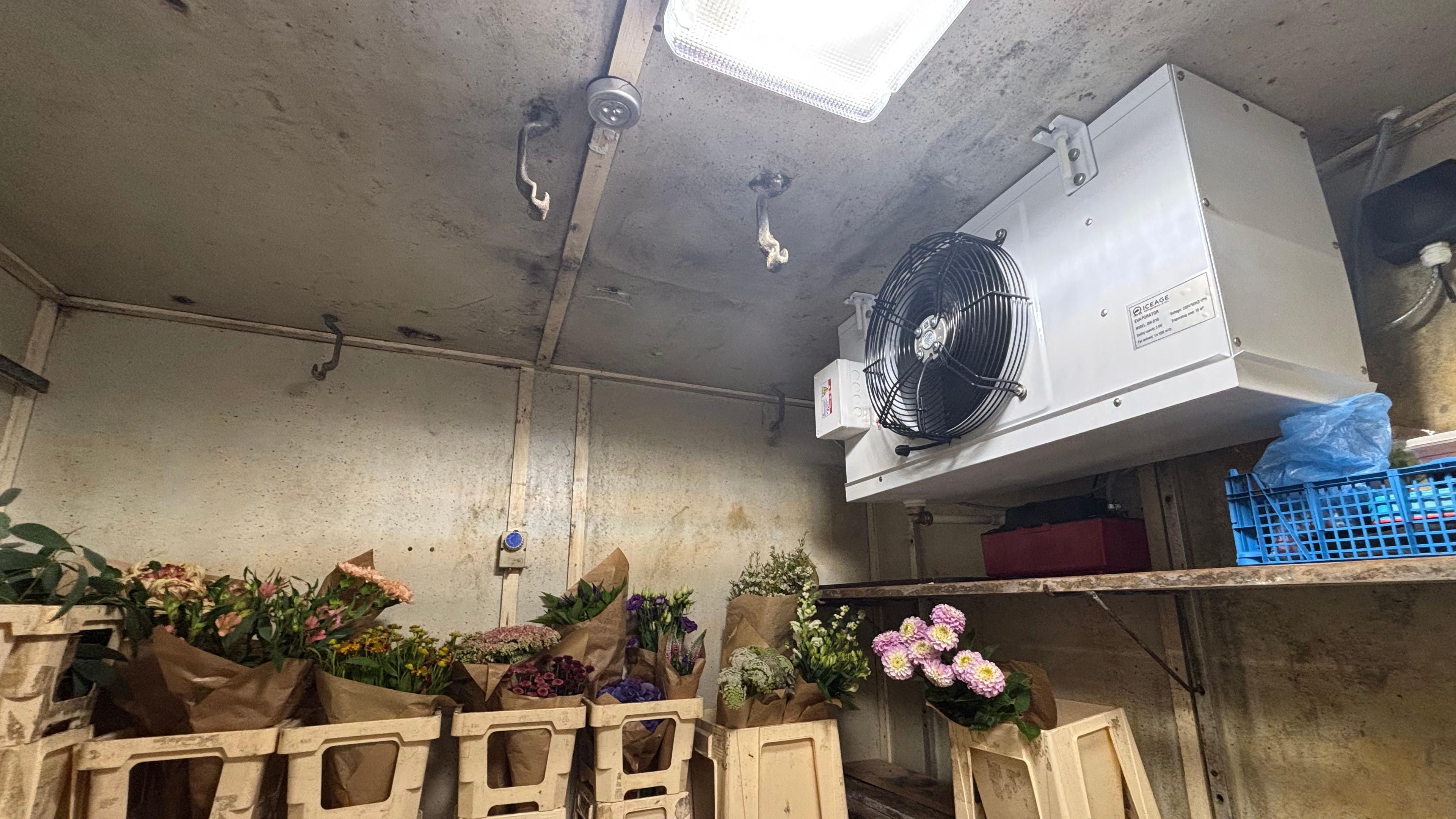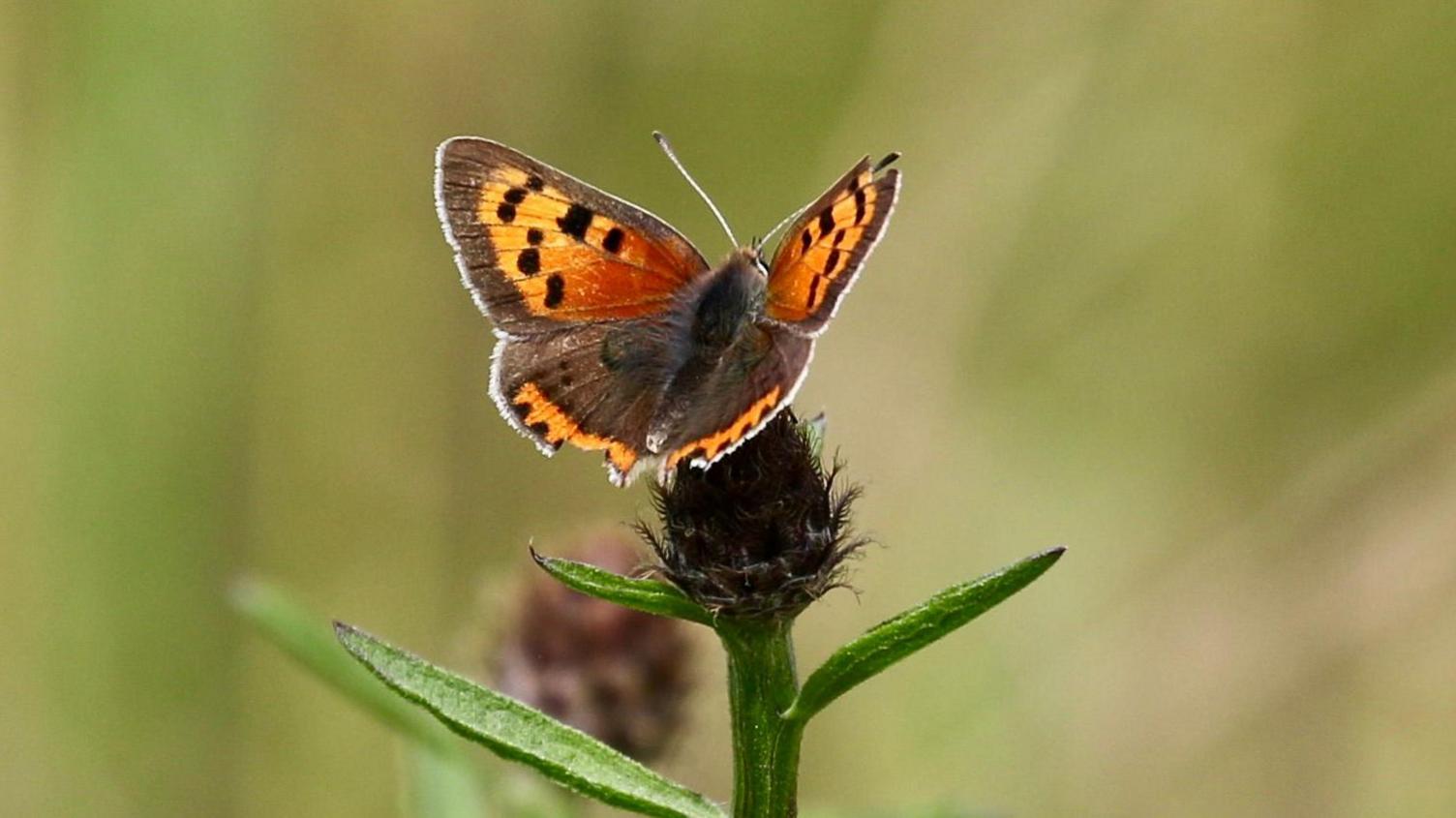'Explosion' of flower-eating pests in hot weather

Red spider mites are difficult to see with the naked eye, but the damage they do isn't
- Published
Unprecedented hot weather in the UK this summer has led to an "explosion" of pests, a horticulturalist has said.
The Met Office recently confirmed summer 2025 was the hottest on record for the UK, and drought conditions are expected to continue through the autumn.
Co-owner of Nottinghamshire-based horticultural firm Floral Media, Steven Routledge, said the conditions had been ideal for microscopic organisms that fed on flowers, such as red spider mites.
"It's an explosion in their life-cycle. They are looking for the hot weather because they love it, it's their perfect environment," he said.
"Once the weather changes and becomes consistently hot, their life-cycle goes into overdrive and they breed like crazy, and the next thing they do is feed."
Picking up a handful of flowers, he demonstrated the damage such pests can cause - leaves that should be lush and green are now brown and crunchy.

Red spider mites thrive in hot, dry conditions
"They suck the sap from the cells and create this dieback, which really weakens the plant and can kill it," Steven said.
He and his wife, Paula, have been running their horticultural business, based in Caunton near Newark, for more than 20 years.
Paula said the last few seasons had been particularly challenging for growing flowers, as the weather switched from one extreme to the other.
"Last year was the season of the wet, which meant we were late harvesting and had challenges with slugs," she said.
"This year we haven't had slugs, but we've had other pests and diseases."

Paula Routledge said the firm had gone from one extreme to the other
She added milder winters meant pests found it much easier to survive.
"They're overwintering much better, so they're there when spring arrives and then they can reproduce very quickly," Paula said.
The conditions have also caused problems for Steve and Paula's customers, such as Ruddington-based florist Stems at 24.
Co-owner Carol Stanbridge said the heat meant it was harder to keep flowers fresh.
"The flowers breathe, they sweat, they rot very quickly, so we were finding we were having to change the water every day," she said.
"In the heat, as soon as you put it into water, bacteria grows really quickly in the water. You imagine the flower is drinking up the water, but it's drinking dirty water."

Florists Shelley and Carol said they had struggled to keep flowers cool
Fellow florist Shelley Raisin added seeing flowers die so quickly was "soul-destroying".
"You're just watching them wilt before your very eyes, and that's not what a florist wants," she added.
After being given a grant by Rushcliffe Borough Council, from the government's UK Shared Prosperity Fund, the business has now installed a new refrigeration system, which Carol said had been a "game-changer" in helping them cut down on waste.
Nonetheless, she said she was concerned about how the industry might have to adapt as hotter summers become more frequent.
"We've had to think more about what flowers we buy," she said.
"We want to be able to offer a whole range, because you come to a florist because we sell different flowers to what you'd buy in a supermarket.
"We've struggled to have that variety because we're looking at some flowers that we think probably won't survive in the heat, so it's limited our buying power."

The previous refrigeration system was more than 70 years old
Get in touch
Tell us which stories we should cover in Nottingham
Follow BBC Nottingham on Facebook, external, on X, external, or on Instagram, external. Send your story ideas to eastmidsnews@bbc.co.uk, external or via WhatsApp, external on 0808 100 2210.
Related topics
- Attribution
- Published1 September

- Published14 July

- Published11 August

- Published26 July
